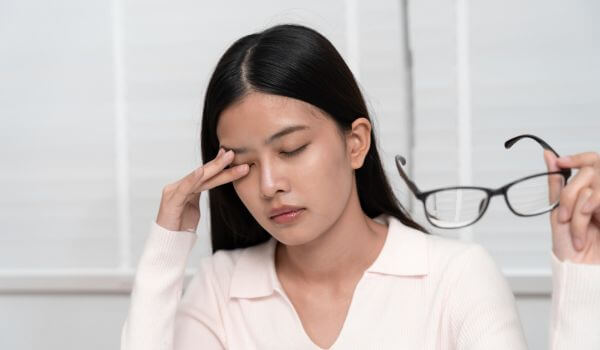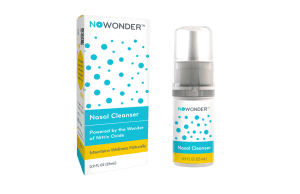 Most women don’t look forward to menopause, and it’s easy to see why. When women pass beyond their age of fertility into menopause, the alterations in body chemistry can produce profound and sometimes uncomfortable changes in their bodies and even their brains. Around 80% of women experience unpleasant symptoms during this time, like hot flashes, vaginal dryness, mood swings, thinning hair, and trouble sleeping. Additionally, the changes that occur in midlife can also affect self-esteem and how women perceive themselves. However, it may be wrong to automatically reject the idea that menopause is not a disease that needs immediate medical attention. There are many ways to cope with menopause without resorting to aggressive interventions. In general, the passage of time itself is one of the greatest healers, and along with that, some gentle aids can make the transition more comfortable.
Most women don’t look forward to menopause, and it’s easy to see why. When women pass beyond their age of fertility into menopause, the alterations in body chemistry can produce profound and sometimes uncomfortable changes in their bodies and even their brains. Around 80% of women experience unpleasant symptoms during this time, like hot flashes, vaginal dryness, mood swings, thinning hair, and trouble sleeping. Additionally, the changes that occur in midlife can also affect self-esteem and how women perceive themselves. However, it may be wrong to automatically reject the idea that menopause is not a disease that needs immediate medical attention. There are many ways to cope with menopause without resorting to aggressive interventions. In general, the passage of time itself is one of the greatest healers, and along with that, some gentle aids can make the transition more comfortable.
Change is a sign of life.
Change happens throughout a person’s lifetime. It may bring with it times when one may long for the “good old days” where you had grown used to your body before the phase of change had set in. Let’s take adolescence, for example. It’s a period when previously placid, friendly and affectionate children can turn into angry and aggressive teenagers seeing drinking, drug use and risky sexual activities as ways to dampen down their suddenly unfamiliar selves. The triggers for this phase are surges in hormones. Thankfully, once they have emerged from the tumultuous years and hormones level-off, their bodies will have adjusted to the new environment, and they will emerge as more stable and ‘normal’ adults.
A cycle of hormone change takes place when women have passed their fertile years. Levels of estrogen start to fluctuate when she passes through perimenopaus and once into menopause, drop off steeply. This again disrupts the patterns she grew used to for twenty or thirty years. It can produce a whole range of alterations in how her body and mind are working, and the changes can make her feel that something is wrong, so she is ‘sick.’.
Women should expect menopause and not fear it.
In the June 2022 issue of the British Medical Journal, a group of specialists in women’s medicine from Australia, the UK and the USA, led by Dr. Martha Hickey of the Department of Obstetrics and Gynaecology at the Royal Women’s Hospital, Victoria, Australia, published an article that sets out to change the way that doctors and women regard menopause.
The title is “Normalising menopause” and it makes a couple of solid arguments, backed by research and statistics, that:
- Negative beliefs and expectations of menopause may increase the likelihood of distressing symptoms
- Women who view menopause as an expected and positive life transition are less likely to experience distress
- Reducing gender-based ageism, eliminating stigma and providing balanced information about menopause may instill confidence and better equip women to navigate this normal life stage.
Why is menopause regarded as a burden, not a blessing?
In western culture, the prevalent language describing menopause is of loss, failure and decline, reinforcing a negative self-image in older women. It amplifies concerns about health and aging in a culture that prioritizes youth.
Negative views about reproductive aging in women have predominated in medical discussion for centuries. Once the link between menopause and estrogen levels was recognized in the 1950s, menopause was commonly labelled an ‘estrogen deficiency disease’ whose physical ‘symptoms’ needed to be treated with hormone replacement therapy (HRT).
Unfortunately, as the BMJ article reports, a typical prevailing view was the one disseminated in one of the most widely referenced books on this subject, “Feminine Forever”, published in 1966 by the gynecologist Robert Winston. He recommended HRT for all menopausal women to treat their ‘serious, painful and often crippling disease’ so as to avoid the ‘untold misery of alcoholism, drug addiction, divorce and broken homes caused by these unstable, oestrogen-starved women.’ (Maybe it shouldn’t come as a surprise that the book was sponsored by manufacturers of HRT looking to promote their message about ‘menopausal decay.’)
The authors of the BMJ article quote the results of a systematic review of standardized questionnaires used to measure menopausal symptoms. It found that these questionnaires only asked about negative symptoms. As a result, there was no way women could report positive experiences of menopause.
Later studies that allowed more positive outcomes reported that menopause can be viewed as bringing positive as well as negative experiencesespecially for those dealing with health issues like heavy periods or migraines tied to their menstrual cycle. Many women also go through a mental shift during this time, feeling more confident and better equipped to handle challenges and setbacks.
After menopause, many things in life can change for the better! Let’s look at some of those things.
No more periods
Menopause is the stage when a woman’s menstrual cycle comes to an end. For many, this can be a relief. It means they no longer have to deal with using tampons or pads, worrying about leaks, or experiencing painful cramps. Many women see menopause as a relief, especially those dealing with heavy periods. For them, not having to worry about periods anymore can significantly improve their quality of life. Women often feel more energetic once their periods stop, as heavy periods can lead to anemia, causing fatigue and weakness. Without periods, they may find it easier to exercise and stay active.
No more perimenopause
Menopause can be a relief for many women after experiencing perimenopause, the stage leading up to it. During perimenopause, women often deal with heavier and irregular periods that can happen more frequently than every 28 days. Once menopause begins, it puts an end to the unpredictability of when their periods will start or stop.
No more PMS
Many women of reproductive age experience premenstrual symptoms. These can include feeling tired, moody, anxious, or depressed, as well as bloating, changes in appetite, and sore breasts. For some women, even with regular menstrual cycles and predictable symptoms, PMS can still cause a few tough days each month. In more serious cases, a condition called premenstrual dysphoric disorder (PMDD) can lead to symptoms that are much more severe and harder to handle.
PMS can get worse during perimenopause because estrogen levels start to rise and fall unpredictably. However, once menopause is complete and hormone levels balance out, PMS usually goes away as the body adjusts.
No more menstrual headaches
Migraines and headaches are often part of the group of premenstrual symptoms that usually disappear after menopause. Menstrual migraines share similar symptoms with other types of migraines, such as head pain, sensitivity to light, sweating, chills, nausea, and vomiting.
During a regular menstrual cycle, changes in estrogen and progesterone levels can cause menstrual migraines. After menopause, these hormone levels drop, which often leads to fewer hormonal headaches.
No more worrying about unplanned pregnancy
For women going through menopause, sex can become more enjoyable without the worry of getting pregnant. According to the Study of Women’s Health Across the Nation, which looks at the physical and emotional changes women face during midlife, this can make a big difference in their experience. Many women find it freeing not to have to think about contraception anymore, though it’s essential to confirm you’ve officially reached menopause, which means going 12 full months without a period, before stopping birth control.
It’s important to remember that birth control and safe sex are not the same thing. Even if pregnancy isn’t a concern, it’s still possible to catch a sexually transmitted infection (STI). Cases of chlamydia, gonorrhea, and syphilis have gone up a lot among adults 55 and older in the past ten years. Regular STI testing and using condoms can help lower the risk.
Reduced uterine fibroids
By the time women reach 50, up to 80% of them may develop uterine fibroids, according to the Office on Women’s Health. Fibroids are noncancerous growths that can be as small as a speck or as large as a grapefruit, sometimes even bigger. The exact cause of uterine fibroids isn’t known, but hormones are a big factor. Estrogen and progesterone can make fibroids more likely to grow. That’s why fibroids often shrink and cause fewer problems during or after menopause.
Menopause can bring relief for women dealing with fibroids. For those tracking fibroid growth to avoid surgery or experiencing heavy periods caused by fibroids, menopause can be a positive change. Women with fibroids pressing on their bladder often feel much better after menopause. After menopause, other symptoms of uterine fibroids like pressure or pain in the pelvis, back pain, or leg pain may also get better.
How to enjoy the positives of menopause
Menopause symptoms like hot flashes, mood swings, and brain fog can be tough, but they don’t have to take over your life. Getting the right care can make a big difference and help people continue living their best lives.
Care may involve interventions such as hormone replacement therapy, or natural interventions such as supplements and lifestyle changes. The market is full of supplements that promise to balance hormones, but many include unproven ingredients like wild yam or potentially harmful ones like black cohosh. The Women’s Hormone Support Pack is formulated with clinically backed ingredients that support hormone balance. That said, it’s important to check DHEA levels before using supplements that include DHEA.
During menopause, avoiding some foods can also help manage symptoms like hot flashes, night sweats, and weight gain. Spicy foods can raise body temperature, worsening hot flashes, so opting for milder seasonings may help. Caffeine and alcohol can also intensify symptoms, so reducing or avoiding them could be beneficial, especially for sleep issues or heat surges. Additionally, cutting back on carbs and starchy foods like pasta, white bread, and processed sugars may help manage weight gain often associated with menopause. Paying attention to how the body reacts to specific foods can guide these dietary adjustments.
A change in attitudes to menopause is overdue.
The medical fraternity, women themselves and society in general have for a long time been in need of an overhaul when it comes to attitudes towards menopause. Thankfully, as articles like the one we have quoted from here show, the doctors are starting to recognize that they need to do their part to turn around both their own approach and the expectations and experiences of their patients. Society is also waking up to how much work needs to be done in this area. A sign of this is the formation of global organizations like the Global Menopause Inclusion Collective. It is a collaboration of menopause activists, advocates, experienced experts, researchers, individuals and professionals interested in advancing equality, equity, diversity and inclusion in the menopause movement. It states its mission as being to “create a global forum for peers, trainers and thought leaders in menopausal inclusion…and (to) dismantle existing menopause stereotypes”.
More people are starting to understand the challenges women face during midlife, and that’s a good thing. This awareness can help women seek support for menopause symptoms that bother them, as getting help from a menopause expert can greatly improve symptoms and make this part of life much easier and more enjoyable.
Now, hopefully, women will feel empowered to take control of their bodies and their minds and accept that menopause is not a disease that needs treatment but as a normal state to be managed.
Frequently Asked Questions
What are the effects of menopause?
Some women experience a range of symptoms during menopause. These can include hot flashes, night sweats, trouble sleeping, joint or muscle pain, discomfort during sex, mood swings, irritability, forgetfulness, difficulty focusing, or a mix of these issues.
What are the main causes of menopause?
Most women go through menopause naturally between the ages of 45 and 55 as they get older. It can also happen because of surgeries or medical treatments. Menopause occurs when the ovaries stop working and the body produces less estrogen.
What is the biggest symptom of menopause?
Hot flashes are the most common sign of menopause, affecting about 75% of women. These are sudden bursts of heat that cause a person’s body temperature to rise for a short time. Hot flashes usually begin before a woman’s final period. For most women, about 80%, they last for two years or less.
What is the most serious side effect of menopause?
Osteoporosis happens when bones lose too much density, making them weaker and more likely to break. As people age, some bone thinning is normal, but it can become worse after menopause. When estrogen levels drop, either naturally or due to surgery, bones can become weaker, increasing the chance of fractures.
At what age does menopause end?
There’s no specific age when postmenopause begins. A person is considered postmenopausal if they haven’t had a period for over a year, no matter their age. As an average, this happens around the age of 52.












